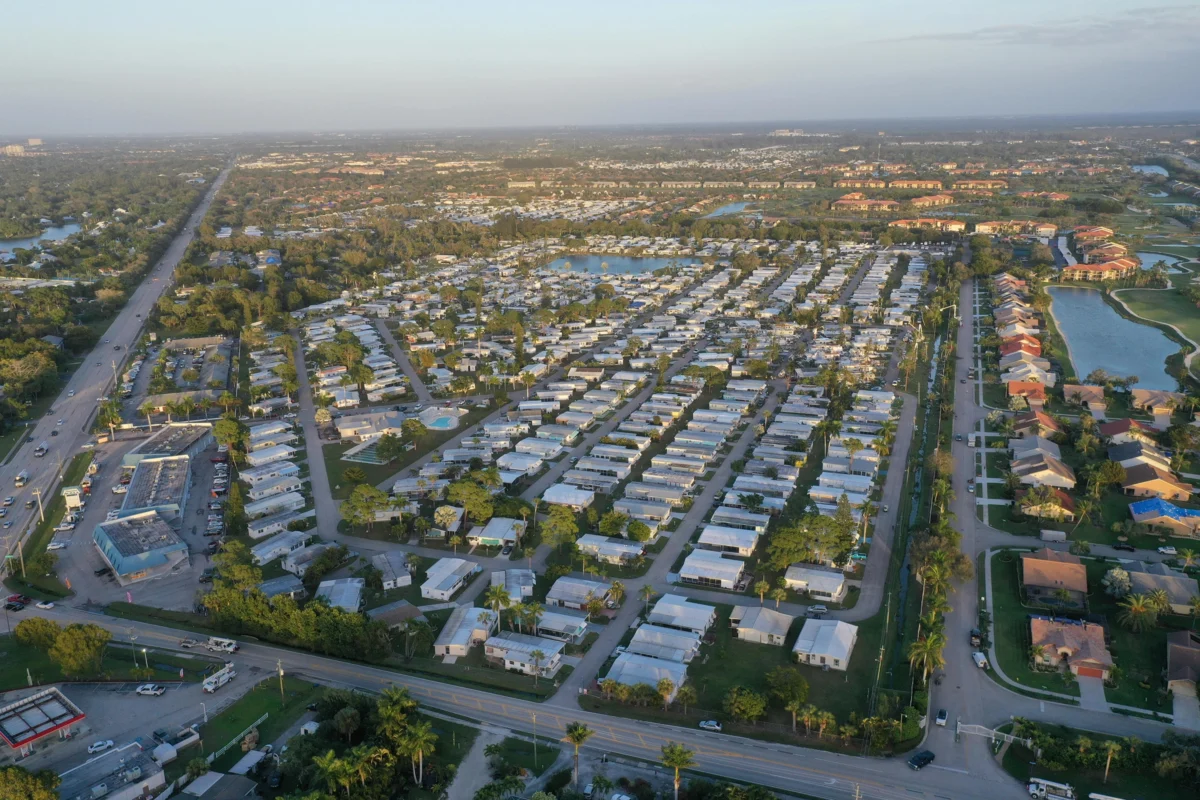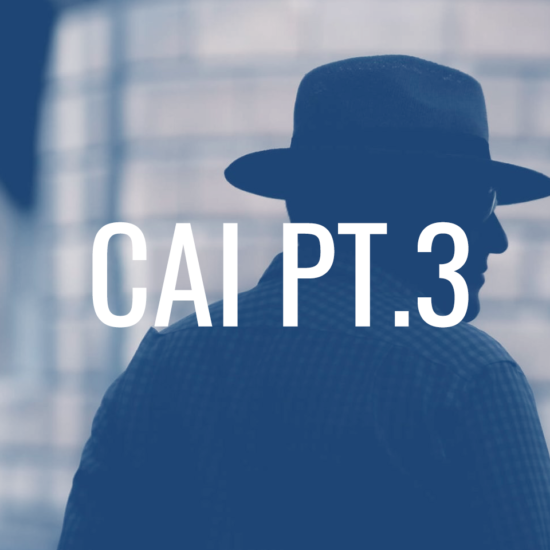
HOA Detective™ – September 2, 2025: For more than half a century, the rise of the homeowner association (HOA) has reshaped the American neighborhood. In the postwar era, HOAs were a rare creature, found mainly in master-planned developments or upscale communities. But beginning in the 1970s, as suburban growth exploded and municipalities searched for ways to offload infrastructure obligations, HOAs became the default model for new development.
Today, HOAs are nearly unavoidable. Roughly 80% of new single-family homes built in the past 25 years are part of an HOA. In Florida, the epicenter of today’s debate, nearly 9.5 million people, about 40% of the state’s entire population, live under the jurisdiction of an HOA.
For the benefit of new readers, when The Detective uses the term “HOA,” he is referring to both condominiums and planned unit developments (PUDs), the two most common forms of common interest developments in the United States. The HOA boom was fueled by more than just efficiency and marketing.
First: Municipalities were eager to shift the costs of roads, landscaping, stormwater systems, and parks onto private associations, freeing local governments from tax-supported upkeep of the commons.
Second: Developers discovered that by creating private associations, they could exert control over neighborhoods, enforce aesthetic uniformity, and sell homes as part of “exclusive communities.”
Third: As some scholars such as Evan McKenzie have pointed out, the rise of HOAs in the years after the 1968 Fair Housing Act also reflected a less visible, darker motive: Privatized governance and restrictive covenants offered a way to preserve patterns of racial exclusion (discrimination) that could no longer be enforced openly by public zoning or lending practices. In this sense, the HOA became not only a tool of fiscal convenience and marketing polish, but also a vehicle for continuing social segregation under a veneer of private contract.
Over time, these forces combined to produce a sprawling system of private government, one that now touches more than 74 million Americans nationwide. In lockstep with the exponential growth in HOAs since 1970, the American Dream of homeownership by the working class has all but vanished!
Entrenched Interests: This half-century of rapid HOA expansion has gone largely unchallenged by policymakers. In the absence of critical contemplation by thought-leaders at the national level, what has emerged is the Community Associations Institute (CAI), a self-described “advocate” for HOA members. While it may be true that CAI provides some benefits to the 74M Americans who live in a HOA, the organization serves largely to promote the interests of industry status quo players, which include the community management sector, HOA lenders, and insurance companies.
Beyond Privatopia: For decades, homeowners and watchdogs –including critics like The Detective and his colleagues have sounded alarms about abuses, foreclosure threats, arbitrary fines, and a lack of accountability within HOAs. State legislatures, in typical fashion, have ignored the public’s pleas for help, or have answered with unenforceable half measures such as:
- Weak financial disclosure rules;
- Weak, reserve study and audit requirements;
- Weak Board of Directors regulations;
- No existing regulation of the community management profession.
Meanwhile, the underlying privatized community structure has been largely untouched, and remains the basic framework imagined by the early advocates of the privatized residential development scheme described by Evan McKenzie in his seminal 1994 book Privatopia. But in 2025, Florida state officials broke from that pattern, stepping decisively across the line from reform to outright revolution.
Representative Juan Carlos Porras, a young Republican legislator from Miami-Dade County, has publicly proclaimed HOAs as a “failed experiment.” Earlier this year, he introduced legislation to strengthen enforcement, empower homeowners, and add transparency. Now he is considering something even more dramatic: abolishing single-family HOAs altogether.
https://www.realtor.com/advice/buy/florida-hoa-ban-lawmaker-proposal
In a state where nearly half the population lives under HOA rule, such a declaration is seismic. Florida’s real estate and development sectors have long depended on the HOA model to sell homes, manage common property, and replace the municipal services that cities no longer provide. To hear a legislator – particularly a conservative Republican – question the legitimacy of the model itself signals a turning point.
Florida is Important in This Regard: Florida has long been ground zero for HOA controversies. The combination of rapid suburban growth, a large retiree population, and aggressive developers has produced a fertile landscape for disputes. The Florida HOA Horror stories abound, as we have documented in this space in the recent past.
The 2021 collapse of Champlain Towers South in the Miami community of Surfside, FL, brought fresh scrutiny to HOA governance, particularly in condominiums. Legislators responded with stricter inspection and reserve funding requirements for condo associations. But the broader issue of HOAs – particularly those overseeing single-family neighborhoods, remained largely untouched. Porras has changed the conversation by connecting the dots between systemic abuse and the privatization of local governance.
The Porras Political Gamble: Proposing to abolish HOAs outright is not a modest reform. It challenges decades of development patterns, municipal finance structures, and real estate marketing strategies. Developers argue that without HOAs, neighborhoods will descend into disrepair or chaos, with no entity to enforce standards or maintain shared spaces. Municipal officials worry about being forced to assume the costs of roads, drainage systems, and amenities that they long ago pushed onto private associations. But Porras frames the issue differently. He is advocating for the old-fashioned notions of:
- Neighborhoods that are governed by accountable public institutions;
- Neighborhoods that are NOT private corporations masquerading as community groups;
- Neighborhoods that do NOT give private corporations the legal authority to lien the homes, and levy assessments that are tantamount to yet another form of taxation.
In Juan Carlos Porras’ view, the “privatization of the commons” has gone too far, and Florida’s homeowners are paying the price in the form of authoritarian governance, financial opacity, and reduced property rights.
The Structural Trap: Dismantling HOAs is not as simple as it might sound. Under current Florida law, dissolving an HOA usually requires near-unanimous homeowner consent. Even if such consent were obtained, questions remain about who would own and maintain the roads, drainage ponds, playgrounds, or security gates. In many cases, the answer would be the municipality in which the development is located, but only if the city or county agrees to accept responsibility, which historically they have resisted. Without a transition plan, the abolition of HOAs by government edict risks creating a vacuum. Critics of the Porras proposal point out that HOA assets, including cash reserves, do not automatically revert to homeowners if an association dissolves. Under Florida law, leftover assets can even escheat to the state, raising the stakes for any dissolution effort. Porras’s critics further argue that reform, not abolition, is the only practical path forward.
Reform or Revolution: Whether Porras’s proposal moves forward in the legislature remains to be seen. Past attempts at major HOA reform in Florida have often stalled under pressure from real estate lobbies, property managers, and attorneys who profit from the current system. Even his 2025 bill to strengthen enforcement and empower homeowners failed to gain traction. But by shifting the conversation from reform to abolition, Porras has expanded the political imagination. At a minimum, his bold rhetoric shines a spotlight on the imbalance of power between homeowners and their associations. It underscores the absurdity of a system in which millions of Floridians must pay hundreds of dollars each month to private corporations that can fine, lien, and foreclose – yet remain largely shielded from public accountability.
Democracy in the Balance: The Florida debate could have national implications. Across the country, municipalities have adopted the HOA model as a way to build housing without raising taxes for public services. As a result, America has drifted into a system where nearly a quarter of all homes are subject to HOA rules. If Florida – the state with the third-largest HOA population in the nation – seriously considers the abolition of HOAs altogether, it could force other states to begin asking the hardest question of all about HOAs, and the one that should have been asked 50 years ago: Are HOAs compatible with democratic governance or not?
For decades, critics have argued that HOAs represent a creeping privatization of the American neighborhood, shifting costs from public to private, eroding the shared responsibility of citizenship, and undermining municipal accountability. Until now, those critiques have lived mainly in academic journals, homeowner blogs, and the occasional lawsuit. But with a sitting legislator declaring the model a “failed experiment,” the debate has entered the political mainstream.
Conclusion: Whether Porras’s proposal succeeds or fails, it marks a watershed moment in the history of HOAs in the United States. For the first time in half a century, a prominent state legislator has said what millions of homeowners have long felt: enough is enough!
Florida may not abolish HOAs tomorrow, but the spell has been broken. The unquestioned growth of private neighborhood governance has finally met its first serious political challenge. This could be the beginning of a larger reckoning – not just for Florida, but for the nation, if the country takes a serious look at the question The HOA Detective™ has been asking for almost 20 years:
Does Privatopia contravene the fundamental underpinnings of American Democracy?
Because You’re Buying More Than a Home!







